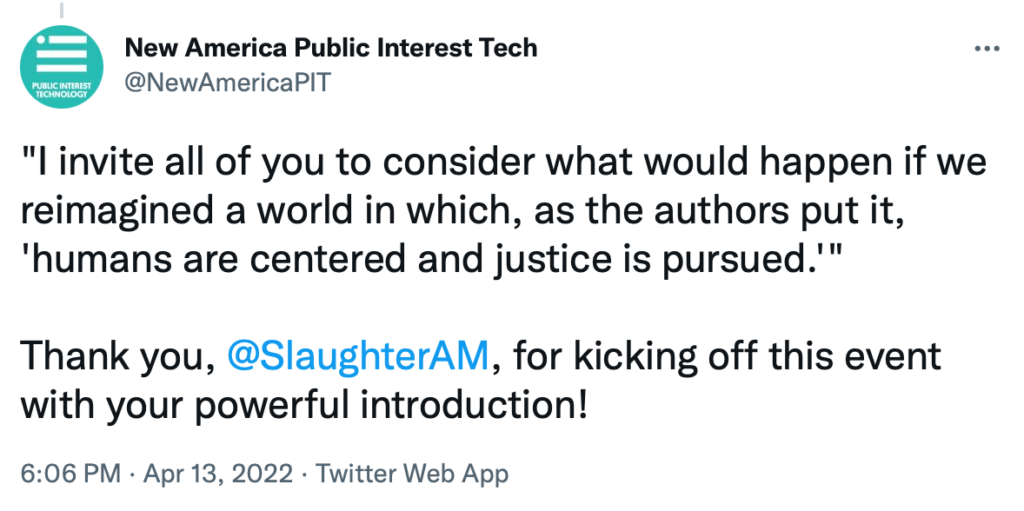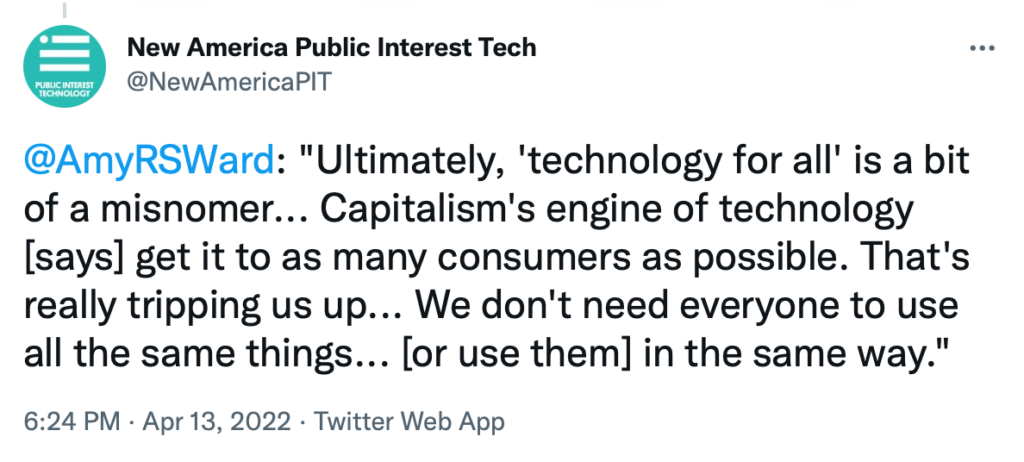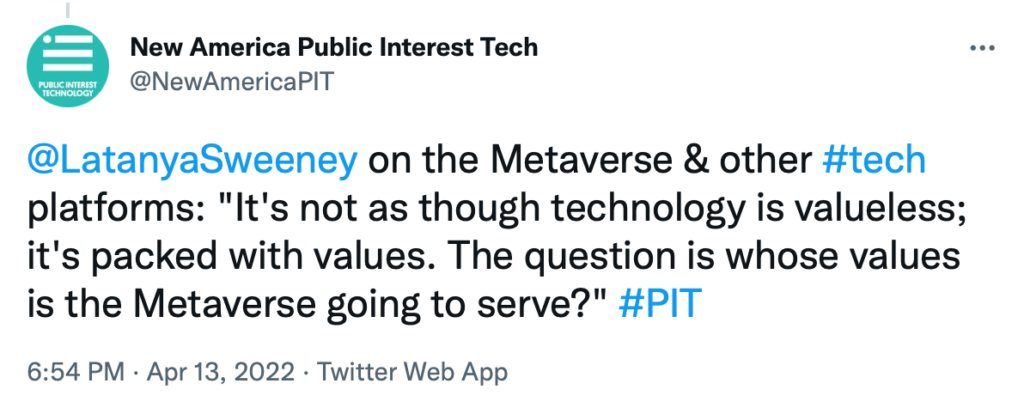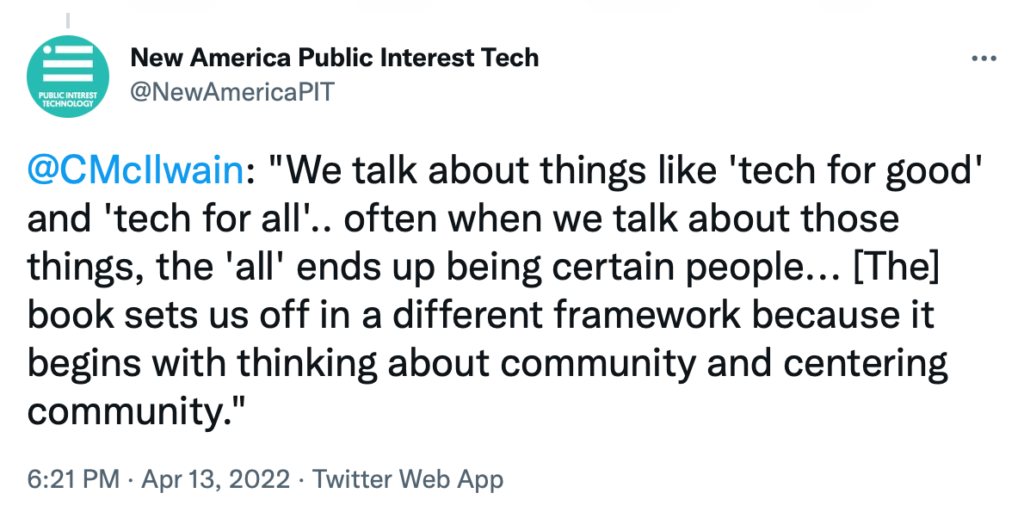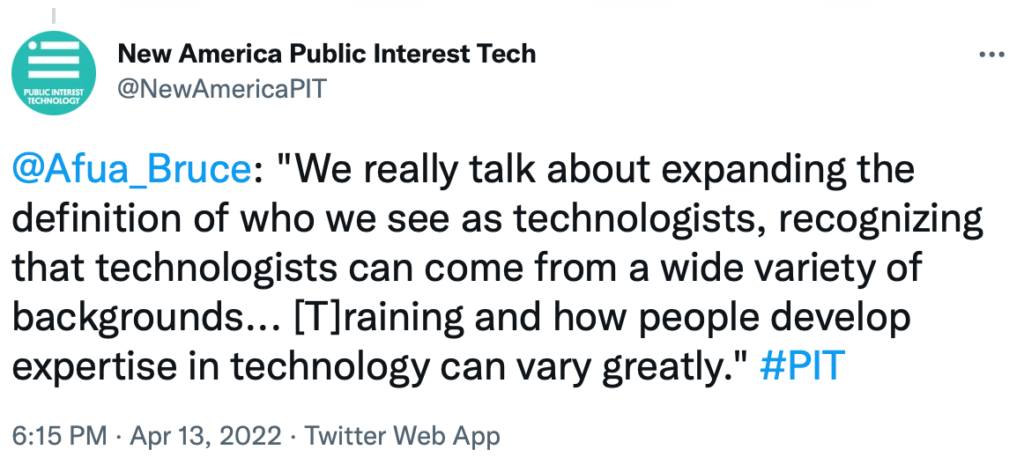On April 13, New America PIT-UN hosted The Tech That Comes Next, an online event centered around a new book of the same name by Afua Bruce, adjunct faculty member at Carnegie Mellon University’s Heinz College, and Amy Sample Ward, CEO of NTEN.
The authors were joined in conversation by moderators Dr. Latanya Sweeney, the Daniel Paul Professor of the Practice of Government and Technology at the Harvard Kennedy School, and Dr. Charlton McIlwain, Vice Provost for Faculty Engagement and Development at NYU. These four experts delved into a discussion on public interest technology (PIT), which is tech intended to advance the public interest and promote public good, and the values that underlie the important work we do in this space.

Centering Values in PIT and Key Stakeholders
Authors Bruce and Ward kicked off the event by defining one’s values as the first step in doing PIT work. Ward stated, “Ultimately, what we value is what, and how, we build whatever we’re building.” Not only do we have to intuitively know what we value, but we have to name these values, and communicate them with our collaborators and stakeholders, she said. Bruce then walked the attendees through the five primary categories of stakeholders identified in the book: social impact organizations, technologists, funders, policymakers, and, most importantly, communities.
Centering Communities in PIT
The speakers delved into the nuances and differences in various communities’ technology needs and the importance of centering communities in all PIT projects, especially in policy work. One example they cited was the way feedback from communities and community-based organizations is at the heart of the Digital Equity Act.
Technology as a Goal versus as a Tool
The concept of power also plays into the relationship between communities and technology. One case study mentioned was a partnership between DataKind and John Jay College that enabled the college to accumulate technical knowhow to guide and strengthen the public interest inherent in their technology projects.
PIT Leadership
The four panelists also discussed how to identify leaders within organizations that are truly committed to advancing PIT work. Ward commented that bringing community members into projects can help build their power and stake in the project, regardless of whether they have an official title or are designated as a leader. Bruce argued that seeking out effective leaders who are actively engaging in important conversations with community members is key to the values of PIT work.
Authors

Afua Bruce

Amy Sample Ward
The Metaverse
The “Metaverse,” a concept denoting the development of a digital platform through which we can connect to a variety of online worlds called metaverses, came up during the discussion.
In addressing a participant’s question on the equity implications of the Metaverse, Ward responded with the questions: Who is the Metaverse for and what purpose does it serve? Who benefits from the substantial investment of resources into the Metaverse?
Dr. Sweeney pointed to the inherently value-laden nature of technology and platforms like the Metaverse, which tend to be presented as valueless.
Dr. McIlwain questioned what role each of us have in the development of the Metaverse and in helping to set boundaries concerning its use.
Ultimately, the panelist asked all of us to think about whether Meta should go into communities and ask what they need or want out of a product, or consider whether the company created a product separate from the community whose needs it might seem to fulfill.

